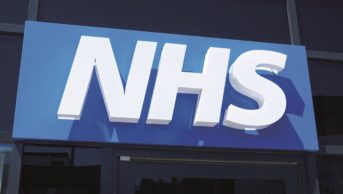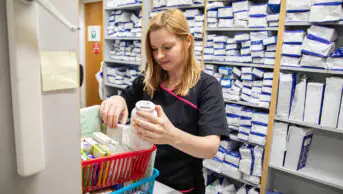
Shutterstock
Doctors who accept free meals from the pharmaceutical industry have higher prescribing rates for the branded drugs the manufacturers promote, according to research published in JAMA Internal Medicine
[1]
(online, 20 June 2016).
Researchers wanted to discover whether there was a link between the number of free meals a physician accepted and their prescribing of promoted drugs. They analysed the Medicare health insurance prescribing data from the United States for individual physicians and data from the federal open payments programme — a system that reveals payments made to physicians from drug companies — between 1 August and 31 December 2013.
The researchers focused on four groups of drugs — statins; cardioselective β-blockers; angiotensin-converting enzyme (ACE) inhibitors and angiotensin-receptor blockers (ARBs); and selective serotonin reuptake inhibitors (SSRIs) and serotonin-norepinephrine reuptake inhibitors (SNRIs).
They looked at data concerning 279,669 physicians and identified 63,524 payments associated with the most prescribed branded drug in each class (rosuvastatin [Crestor], nebivolol [Bystolic, branded as Nebilet in Europe], olmesartan [Benicar, branded as Olmetec in Europe] and desvenlafaxine [Pristiq], respectively). Some 95% of payments were for industry-sponsored meals with an average cost of less than US$20.
Physicians who received a single meal promoting the drug of interest had higher rates of prescribing rosuvastatin over other statins (adjusted odds ratio [OR] 1.18; 95% confidence interval [CI] 1.17–1.18); higher rates of prescribing nebivolol over other β-blockers (OR 1.70; 95% CI 1.69–1.72); olmesartan over other ACE inhibitors and ARBs (OR 1.52; 95% CI 1.51–1.53); and desvenlafaxine over other SSRIs and SNRIs (OR 2.18; 95% CI 2.13–2.23).
Accepting additional meals and meals costing more than US$20 was associated with higher relative prescribing rates, the researchers found. However, they warn that the findings represent an association, not a cause-and-effect relationship.
References
[1] DeJong C, Aguilar T, Tseng C-W et al. Pharmaceutical industry – sponsored meals and physician prescribing patterns for medicare beneficiaries. JAMA Intern Med 2016. doi: 10.1001/jamainternmed.2016.2765


